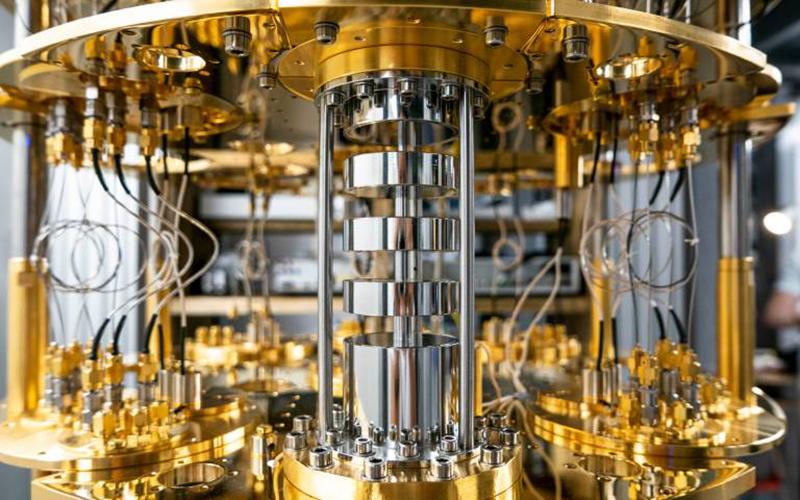Study shows promise of quantum computing using factory-made silicon chips
A single qubit on a standard silicon transistor chip has been successfully demonstrated as “quantum capable” in a new study by the UCL spinout Quantum Motion, led by researchers at UCL and Oxford University.

The latest study, published in the journal PRX Quantum, suggests that these computers could be made with industrial-grade silicon chips using existing manufacturing processes, instead of adopting new manufacturing processes or even newly discovered particles.
Researchers were able to isolate and measure the quantum state of a single electron (the qubit) in a silicon transistor manufactured using a ‘CMOS’ technology similar to that used to make chips in computer processors. Furthermore, the spin of the electron was found to remain stable for a period of up to nine seconds. The next step is to use a similar manufacturing technology to show how an array of qubits can interact to perform quantum logic operations.
Professor John Morton at the London Centre for Nanotechnology at UCL, UK, says, ‘We’re hacking the process of creating qubits, so the same kind of technology that makes the chip in a smartphone can be used to build quantum computers.
‘It has taken 70 years for transistor development to reach where we are today in computing and we can’t spend another 70 years trying to invent new manufacturing processes to build quantum computers. We need millions of qubits and an ultra-scalable architecture for building them, our discovery gives us a blueprint to shortcut our way to industrial scale quantum chip production.’
Researchers at UCL performed the experiment working in a low-temperature laboratory keeping the chips in a refrigerated state, cooled to a fraction of a degree above absolute zero (−273 degrees Celsius).

